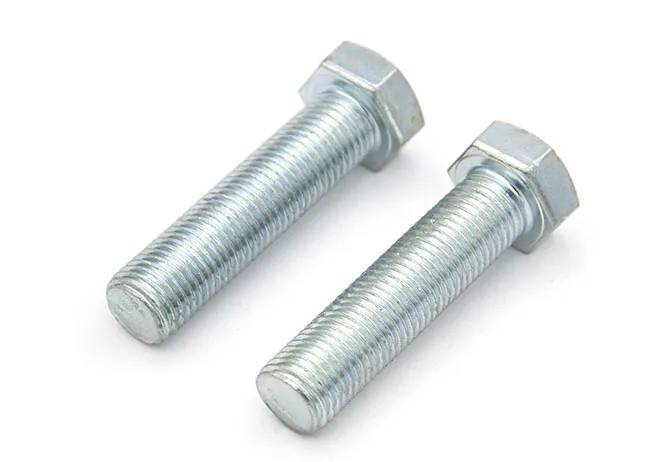5 8 wedge anchor bolts factory
Nov . 11, 2024 18:44 Back to list
5 8 wedge anchor bolts factory
Understanding 5% and 208% Wedge Anchor Bolts A Factory Perspective
In the realm of construction and industrial applications, the importance of robust fastening solutions cannot be overstated. Among the plethora of fastening mechanisms available today, wedge anchor bolts have gained considerable popularity due to their unique design and reliability. This article delves into the specifics of 5% and 208% wedge anchor bolts, exploring their factory production processes, applications, and advantages.
What are Wedge Anchor Bolts?
Wedge anchor bolts are a type of concrete anchor primarily used to secure structures to concrete surfaces. Designed with a wedge-shaped end, these bolts expand upon installation, providing a strong grip inside the concrete. They are engineered to withstand heavy loads and are commonly used in various construction scenarios, including securing machinery, automotive components, and even large platforms.
The Significance of 5% and 208% Ratings
The terms '5%' and '208%' refer to the load capacities and performance specifications of the wedge anchor bolts. A 5% bolt is designed to handle loads with a safety factor of 5%, meaning it can support up to five times the expected weight load. This is critical in situations where safety is paramount, such as in seismic zones or high-stress environments.
On the other hand, a 208% wedge anchor bolt ensures more substantial safety margins and enhanced performance under extreme conditions. This means that these bolts can tolerate loads that are 2.08 times higher than standard safety requirements. Such durability makes them ideal for industrial applications where heavy machinery and equipment are involved.
Manufacturing Process in Anchor Bolt Factories
5 8 wedge anchor bolts factory

The production of wedge anchor bolts involves several intricate steps to ensure quality and reliability. Initially, high-grade steel is selected for its strength and durability. The steel is then heated to reach a malleable state before being shaped into the desired geometry of the wedge anchor bolt.
Once forged, the bolts undergo a series of treatments, including heat treatment, to enhance their hardness and tensile strength. The finishing process may involve coating the bolts—often with zinc or epoxy—to increase corrosion resistance, making them suitable for outdoor and harsh environments.
Quality control plays a vital role in the factory production process. Each batch of wedge anchor bolts is rigorously tested for load capacity, tensile strength, and overall integrity. This compliance with industry standards ensures that the products meet the expectations for various applications.
Applications Across Industries
5% and 208% wedge anchor bolts are used across multiple sectors due to their versatility. In the construction industry, they are essential for anchoring structural frameworks, machinery, and safety barriers. In manufacturing, these bolts are critical for securing equipment and tools, ensuring operations run smoothly and safely.
Outdoor installations, such as fencing and signage, also benefit from the use of wedge anchor bolts. With the added corrosion-resistant coatings, these fasteners can endure the elements while maintaining their strength and performance over time.
Conclusion
In conclusion, the significance of 5% and 208% wedge anchor bolts in various applications underscores the importance of selecting the right fasteners for specific projects. Understanding the intricacies of their manufacturing process, load capacities, and practical uses can help construction and engineering professionals make informed decisions that prioritize safety and effectiveness. As industries continue to evolve, the demand for reliable fastening solutions like wedge anchor bolts remains a critical component of successful construction and engineering efforts. Therefore, investing in high-quality anchor bolts from reputable factories is essential for ensuring the longevity and stability of any construction project.
Latest news
-
High-Quality Panel Stud Bolt Reliable Panel Stud Bolt Factory & Suppliers
NewsJul.08,2025
-
High-Precision Fine Thread Locknuts Manufacturer & Supplier Custom Solutions
NewsJul.08,2025
-
PH Imperial Stud Bolt – High Strength Fasteners from Leading Supplier & Factory
NewsJul.07,2025
-
High-Quality Allen Wrench Bolts Leading Factory, Company & Suppliers
NewsJul.07,2025
-
Wholesale Ball Stud Bolt - High Quality Supplier & Factory Price Reliable Wholesale Ball Stud Bolt Company
NewsJul.06,2025
-
High-Strength Alloy Bolts Manufacturer & Supplier Quality Alloy Fasteners Factory
NewsJul.06,2025
